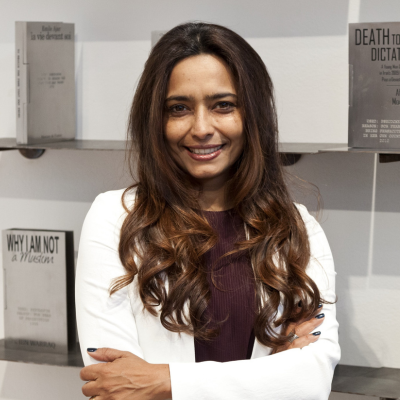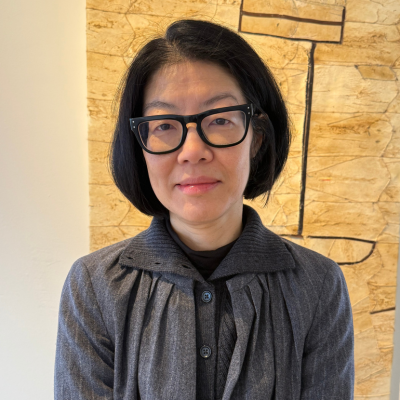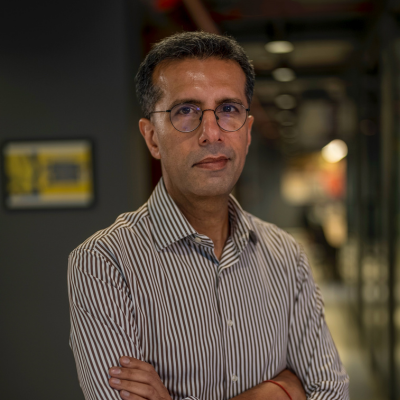November 14 , 2025
02:00 PM - 03:00 PM
Aditya Birla Auditorium | On-site

This panel will examine how Asian patronage is reshaping global art and cultural narratives, fostering new generations of thought leaders, and supporting sustainable ecosystems for education, heritage, and the arts. As the global spotlight shifts toward Asia, educational and para-academic institutions are increasingly recognising the region’s growing influence. Simultaneously, Asians and the diaspora are raising the region’s profile by supporting centres for Asian studies, heritage, and art, while the shift from public to private funding is transforming the landscape of cultural and educational initiatives worldwide.

Shanthi Kandiah is the Founder and Managing Partner of Shanthi Kandiah Chambers, a boutique law firm specializing in competition and antitrust, data privacy, and telecommunications regulations. She serves as an Independent Non-Executive Director of Westports Holdings Berhad and a Non-Independent Director on the Board of Port Klang Cruise Terminal. As the Protector of the Creador Foundation, the non-profit arm of Creador, a private equity firm founded in 2011 by her husband, Shanthi supports initiatives in education, healthcare, arts, and culture across Malaysia, India, Sri Lanka, and Indonesia. Together they co-founded the Alaka Foundation, which focuses on similar programs. Additionally, she is a trustee of the World Wildlife Fund, Malaysia.

Dr. Deepanjana Klein is the Special Advisor to the Chairperson and Director of Acquisitions and Development at the Kiran Nadar Museum of Art (KNMA). In this capacity, she has spearheaded major collaborations with leading international institutions including the Barbican in London, the Museum of Modern Art (MoMA) in New York, and Qatar Museums in Doha, building and strengthening KNMA's global institutional partnerships. Klein holds a Ph.D. in Indian Art History from De Montfort University, England. She has taught art history, theory, and aesthetics at the Leicester School of Architecture and the Kamla Raheja Vidyanidhi Institute for Architecture and Environmental Studies in Mumbai. Her scholarship includes contributions to the Encyclopedia of Sculpture (Fitzroy Dearborn Publishers), and she writes regularly on contemporary Indian art for various journals. She is the recipient of a Mellon Foundation (ArtStor) grant for her photographic documentation of the Ellora cave temples, and her forthcoming book on the Ellora Caves will be published in spring 2026. Prior to joining KNMA, Klein spent 15 years at Christie's as International Head of Modern and Contemporary and Classical Indian and Southeast Asian Art.

Lydia Yee is a London-based curator, art historian and museum consultant. She is currently director of Muara Arts, senior curatorial advisor to YDP and a member of the external faculty for New Curators. Yee has previously held curatorial positions in London and New York, including chief curator, Whitechapel Gallery; curator, Barbican Art Gallery and senior curator at The Bronx Museum of the Arts. A recipient of the Asian Cultural Council Individual Fellowship (2024–25) and a member of the Turner Prize jury (2024), Yee was also co-curator of Frieze Talks (2018–19) and British Art Show 8 (2015–17).

Ashish Dhawan is the Founder-CEO of The Convergence Foundation. He is also the Founding Chairperson of Ashoka University and Central Square Foundation, and serves on the governing board of the Gates Foundation. Before his second career as a philanthropist, Ashish was among India’s most successful private equity investors. He founded and ran ChrysCapital, the country’s leading private equity firm. He graduated from Yale University and received his M.B.A. from Harvard Business School. Ashish is also on the India Advisory Board of Harvard and a member of Yale’s Development Council.

Mukti Khaire is the Girish and Jaidev Reddy Professor of Practice at Cornell Tech and the Cornell SC Johnson College of Business. Khaire is an economic sociologist who studies the creation of new markets by pioneering entrepreneurs in creative and cultural industries, including art, fashion, film, music, and publishing. Her research has shed light on how entrepreneurs leveraging technology in these industries have changed the structure and functioning of these industries, leading to consequences for society more broadly. Her book, “Culture and Commerce: The Value of Entrepreneurship in the Creative Industries,” was named one of Forbes’ Top 10 Books on Creative Leadership.